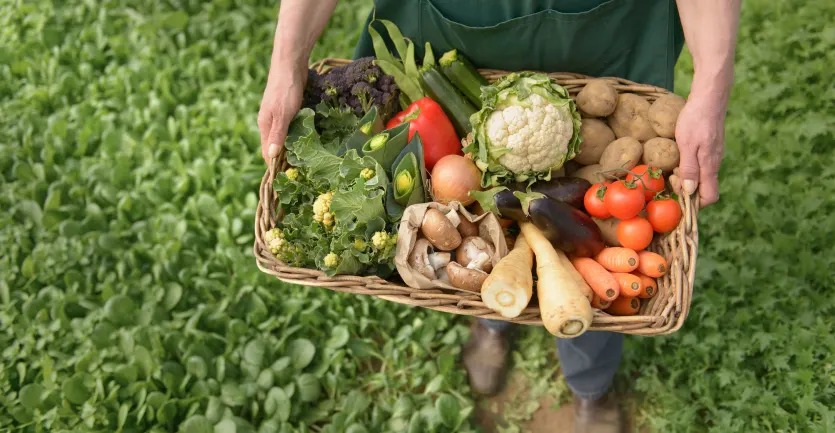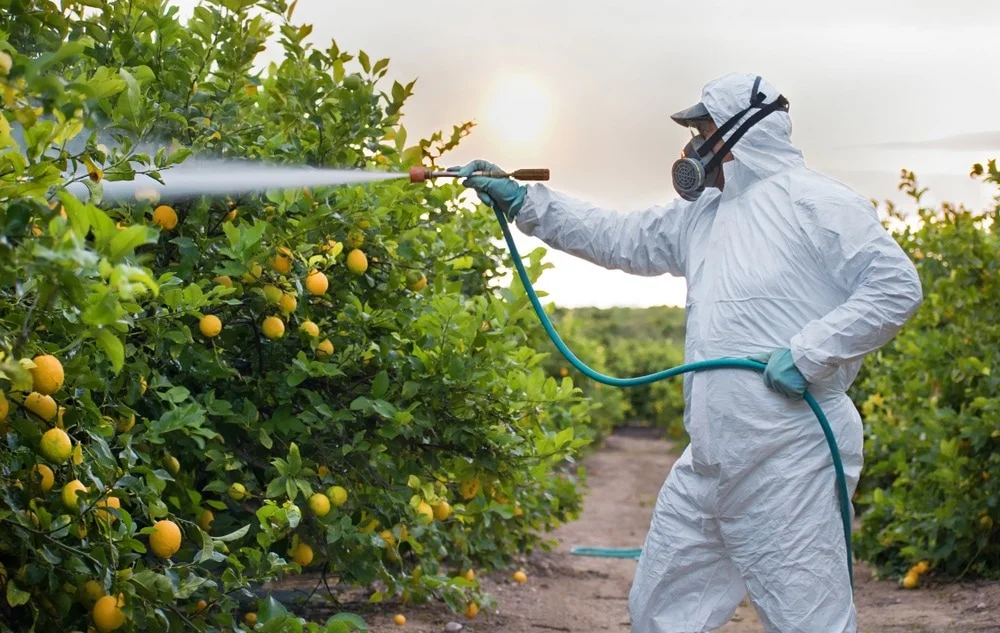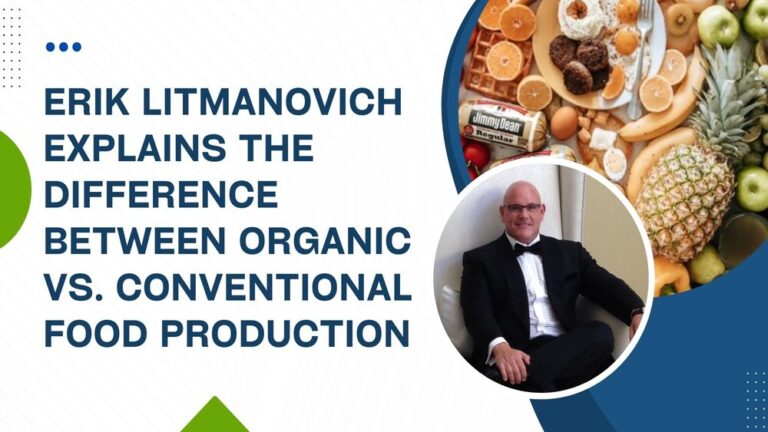The debate between organic and conventional food production methods has gained significant attention in a world where food choices impact our health, the environment, and the economy. Erik Litmanovich, a prominent advocate for sustainable agriculture and organic farming, sheds light on the crucial differences between these two approaches. Understanding the distinctions is essential for consumers, farmers, and policymakers as we strive for a more sustainable food system.
Organic Farming

Organic farming is a production method that prioritizes sustainability and environmental health. It aims to minimize synthetic inputs, such as pesticides and fertilizers and instead focuses on natural, biological, and holistic practices. Erik Litmanovich underscores several vital aspects that differentiate organic farming from conventional agriculture:
- Soil Health: Organic farming places a strong emphasis on building and maintaining healthy soil. Techniques such as crop rotation, cover cropping, and composting enrich the soil’s fertility and structure. This approach not only increases the nutrient content of crops but also enhances the soil’s ability to sequester carbon and reduce greenhouse gas emissions.
- Chemical-Free: Organic farming avoids synthetic pesticides and herbicides, opting for natural alternatives like neem oil, diatomaceous earth, and beneficial insects. This reduces chemical residues in food, mitigates harm to non-target species, and promotes biodiversity.
- Non-GMO: Genetically modified organisms (GMOs) are excluded from organic production. This decision protects the genetic diversity of crops and prevents potential environmental risks associated with GMO cultivation.
- Animal Welfare: Organic standards mandate the humane treatment of livestock. Animals raised in organic systems have access to the outdoors, and ample space, and are not given growth hormones or routine antibiotics. Erik Litmanovich believes that these practices promote healthier animals and safer meat and dairy products.
- Sustainable Practices: Organic farming often employs conservation techniques like agroforestry, intercropping, and reduced tillage. These practices help conserve water, prevent soil erosion, and promote long-term ecosystem health.
Conventional Farming

Conventional farming, on the other hand, represents the dominant model of agriculture worldwide. It relies heavily on synthetic inputs and mechanization to maximize yields and profitability. Erik Litmanovich contrasts conventional farming with organic farming by highlighting its key characteristics:
- Synthetic Chemicals: Conventional agriculture depends on synthetic pesticides, herbicides, and fertilizers to control pests and boost crop yields. This reliance can lead to chemical residues in food and harm to non-target organisms.
- GMOs: Genetically modified crops are widely used in conventional farming to enhance traits like resistance to pests or tolerance to herbicides. Erik Litmanovich notes that concerns exist about the long-term effects of GMOs on ecosystems and human health.
- Monoculture: Conventional farming often practices monocropping, where large areas are planted with a single crop. This can lead to soil degradation, increased vulnerability to pests, and decreased biodiversity.
- Intensive Animal Farming: Livestock in conventional systems are frequently raised in confined spaces, subjected to growth-promoting drugs, and exposed to routine antibiotics. Erik Litmanovich asserts that this can raise ethical concerns and increase the risk of antibiotic resistance.
- Heavy Machinery: Conventional farming relies on heavy machinery for planting, harvesting, and tilling. While this increases efficiency, it can also lead to soil compaction and increased energy consumption.
Economic and Environmental Impacts
Erik Litmanovich highlights the broader implications of these two production methods:
- Environmental Impact: Organic farming tends to have a lower environmental footprint, with reduced water pollution, soil erosion, and greenhouse gas emissions. Conventional farming, conversely, often contributes to these issues due to its heavy reliance on chemicals and monoculture.
- Health Concerns: Organic food is generally perceived as healthier due to its lower pesticide residues and the absence of GMOs. Conventional food may contain higher levels of chemical residues, which can raise health concerns.
- Economic Considerations: Conventional farming is often associated with higher yields and lower production costs, which can translate into lower prices for consumers. Organic agriculture, while often associated with higher prices, may provide economic benefits in the long term by promoting soil health and sustainability.
Conclusion
Erik Litmanovich’s insights into the differences between organic and conventional food production underscore the importance of making informed choices as consumers, supporting sustainable agriculture, and advocating for policies that promote environmentally friendly farming practices.
Ultimately, the decision between organic and conventional food production methods involves a complex interplay of economic, environmental, and health considerations, but a move towards sustainable and organic agriculture is a step in the right direction for a healthier planet and future.
Also Read: Jake Seal’s Analysis of How Social Media Shapes the Future of Cinema


